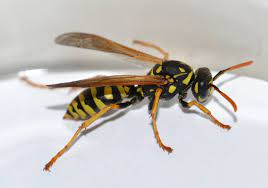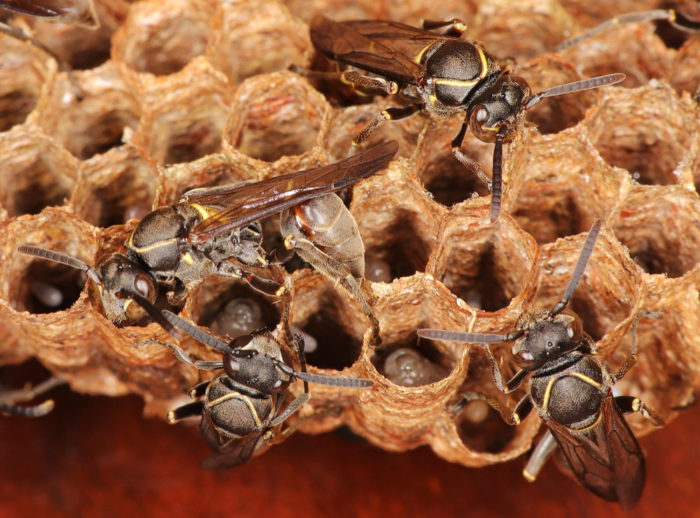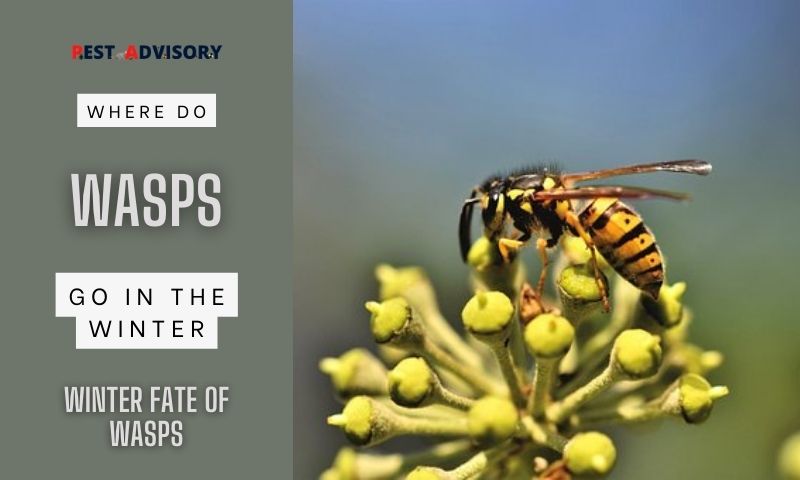As the days grow shorter and the temperature drops, the familiar buzz of wasps that once filled the air disappears.
It’s easy to assume that the cold weather causes their disappearance, but the truth is much more interesting.
Wasps have a fascinating winter fate, one that involves hibernation, starvation, and the survival of only a select few.
Important Note: If you're tired of pests and want a reliable solution, then you should definitely consider seeking help from a professional pest control company. DIY solutions can be effective, but if you're dealing with a significant pest infestation, you don't want to rely solely on DIY methods. Pest control companies typically don't charge huge fees. You can fill out this form to receive free quotes from the top local pest control companies, and compare the quotes and see for yourself. Then, finally, your pest problems will be eliminated for good.
In this article, we’ll explore where wasps go in the winter, what happens to them during the colder months, and how they manage to survive until the next spring.
So, let’s dive into the secret life of wasps and discover their winter fate!
Do Wasps Die in Winter?
Yes, wasps do die in winter due to starvation, not cold. With food scarce, the entire colony dies except for the queen. During the first frost, most wasps die except for the young queens, who are hardy enough to survive. Adult wasps do not survive winter.

Where Do Wasps Go in the Winter and What Happens to Them?
The majority of wasps die when the temperature drops dramatically, as they are unable to withstand the cold.
Adult wasps, on the other hand, may endure these conditions by hibernating in places where they won’t be disturbed.
The majority of these wasps are females who have been sexually mated. Females who are sexually mated hibernate throughout the winter, particularly a mated queen known as a “foundress.”
She is in charge of the initial stages of nest formation. Wasps may struggle to survive hibernation due to a shortage of food and other supplies.
How Do Wasps Survive in the Winter?
Some adult wasps survive the winter by hibernating in hidden places where they won’t be disturbed, such as underneath tree bark or in cracks and crevices around structures.
In the fall, the young queen wasps mate and then seek out a protected place to hibernate over the winter.
They will store up enough fat reserves to make it through the winter months. During this time, their metabolism slows down and their body temperature drops to conserve energy.
When spring arrives, the queen will emerge from her hibernation and begin to build a new nest and lay eggs to start a new colony.
Where Do Wasps Hibernate?
Approximately only two queen wasps every year, out of a total of 4,500, will survive the winter. These queens will hibernate in secluded areas such as crevices in buildings or trees.
Queen wasps require a warm environment to survive hence they seek sheltered areas in order to survive the winter temperatures.
However, because they hide in crevices in buildings, they are frequently attacked by predators such as spiders and other larger insects, which explains why so few wasps survive the winter.

Frequently Asked Questions
Do wasps hibernate in the winter?
Yes, wasps do hibernate in the winter. During the winter, when temperatures drop and food becomes scarce, the queen wasp is the only one that generally survives.
She will find a sheltered location, such as an attic, basement, or closet, and tuck her antennae and wings into a protected spot.
Her metabolism slows down, and she enters a state of diapause, which is similar to hibernation in other animals.
During this time, she conserves energy and uses stored fat reserves to survive until spring.
In the spring, the queen emerges from hibernation and begins to build a new nest and lay eggs to start a new colony.
Where do queen wasps go in the winter?
Queen wasps typically find a warm, dry hiding spot to hibernate during the winter. They often prefer discreet locations such as an attic, basement, closet, or inside sheltered structure.
They may also hide in natural locations like tree trunks, under rocks, and other protected areas.
The queens will prepare by storing up enough fat reserves to survive the winter.
What temperature do wasps die?
Wasps are cold-blooded insects, which means that their body temperature is regulated by their environment.
Wasps begin to die off when the temperatures drop below freezing during winter months.
However, during the fall, as temperatures drop to around 60-70 degrees Fahrenheit, most wasps will die off as well.
Is It Safe to Remove a Wasp Nest In Winter?
Wasps do not revisit their old nests, but certain species might build a new one on top of an old nest.
During the winter, it’s a good idea to pull down the empty nest and thoroughly clean the area well before the queen tries to recover it.
Conclusion
Well now you know, wasps that sing you die in the winter. So you are free to roam around while wasps are resting.
If you are worried that wasps will come and nest then you can apply the techniques mentioned above like by setting a false nest to repel them from your home.
If you are worried that a wasps nest is decreasing the beauty of your house then it’s safe to get it removed in winter.

